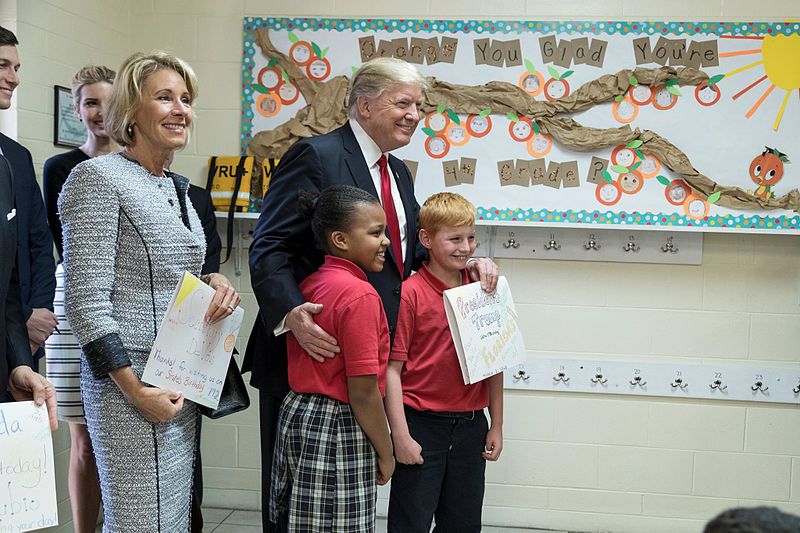
The Freedom From Religion Foundation is schooling Congress on why it should discard the Trump administration’s proposed education budget.
The budget that President Trump announced this week would funnel $500 million to private educational institutions through school vouchers. Christian schools would be the overwhelming beneficiaries, since they make up the vast majority of private schools in the United States. The Freedom From Religion Foundation is calling on Congress to remove this voucher scheme.
“Americans support public schools,” says FFRF Co-President Annie Laurie Gaylor. “We do not want to see our public money sent to unaccountable religious entities.”
Trump and Education Secretary Betsy DeVos have repeatedly sought to send federal education dollars to private elementary and secondary schools. DeVos has long opposed the separation of state and church. Some years ago, she funded an unsuccessful campaign in Michigan to repeal a state constitutional protection that prevented public money from going to religious schools. As secretary of education, she is doing everything in her power to get private vouchers going full steam ahead.
By design, the budget proposal is just the first step toward funding church-operated schools. The Trump budget says, “This investment serves as a down payment toward achieving the president’s goal of an annual federal investment of $20 billion — for a total of an estimated $100 billion when including matching state and local funds — in school choice funding.”
A federal voucher program would create a windfall for church-run schools. In Wisconsin, 100 percent of the participating schools in the statewide voucher program are religious. In Indiana, 99 percent of voucher students attend religious schools. In North Carolina, 92 percent of students participating in the voucher program attend religious schools.
Trump’s proposed budget proclaims, “So many of America’s poorest children — especially African-American and Hispanic children — attend failing public schools that afford them little hope of fulfilling their great potential.”
But private voucher programs by states have demonstrated that religion is the main benefactor, not students. Trump’s dystopian view of public schools ignores comparative studies of voucher and public schools in Indiana, Louisiana, Ohio and the District of Columbia finding that voucher students fared worse academically than public school students.
Besides these objective measures, voucher schools often do not have to meet minimal education standards, such as school accreditation, teacher licensing and safety requirements. FFRF asserts that where public money goes, public accountability must follow. Locally elected school boards have oversight over public schools, but not religiously segregated schools.
“We ask that members of Congress listen to their constituents, a majority of whom oppose voucher schemes,” says Gaylor.
Elected representatives have a lot to learn from the common folk in this country.

